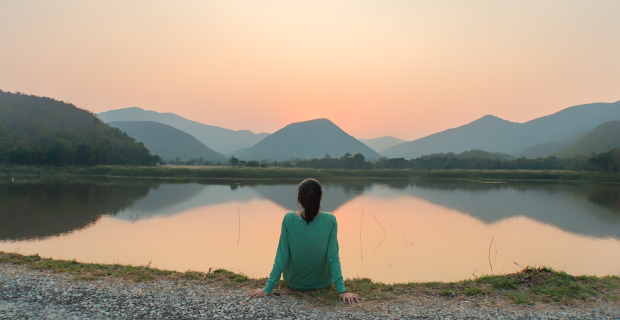The industry must think big to identify new trends emerging from the coronavirus crisis, says Guy Chambers, managing director of PR and communications agency Black Diamond
Over nearly three decades in the communications and travel worlds, I have weathered a few storms, and each time we have turned our hand to new developments to ensure we have come out stronger and more innovative.
Nothing has happened on such on a global scale as this crisis, but I still believe it presents a unique opportunity to reset the dial and travel better and smarter.
With longer check in times at airports, restrictions on who can and can’t travel, and health now a primary holiday decision-maker, this pandemic will have long-lasting effects on the way consumers will travel.
Here are our predictions of some of the trends that might emerge.
Challenging the OTAs
We envisage that there will be greater diversity in the distribution of travel with new platforms challenging the established OTAs’ dominance. A more streamlined digital infrastructure with rich data enabling ever greater personalisation and direct booking functionality will transform the travel distribution landscape.
We believe new global entrants in the distribution of travel will be able to offer a more complete and competitive service for the customer and greater flexibility for the supplier.
Covid-free island destinations
As islands big and small emerge quicker out of this pandemic, will we see an increase in demand to visit them? From Australia to Sardinia, we predict health passports will lead to a kite-mark specifically designated for destinations who have contained themselves in relative safety and are now Covid-free. Island travel often invites low client volumes and this relative safety will increase demand.

Rise of the Resort Robot
The fly and flop holiday will become in vogue again as people are encouraged to travel to resorts – and stay there. Do not leave the resort gates; do not explore the wider destination, do not venture out! In addition, these resorts and hotels will invest in automation of facilities and robotics as much as possible to enable social distancing for guests and to pose a lower risk to staff.
Dead MICE means affordable hotels
The short, mid and possibly even long-term impact of Covid-19 on the convention market will result in an abundance of affordable bed rates for the leisure market. Despite significant consumer demand for travel to open spaces, the very nature of getting to the great outdoors will be via an urban gateway, which will inevitably drive growth in ‘city to outdoor’ stays when aligned with competitive airfares.
“Despite significant consumer demand for travel to open spaces, the very nature of getting to the great outdoors will be via an urban gateway”
Those cities – particularly in the USA (Chicago, Las Vegas, San Francisco, Orlando, and New Orleans) – which have traditionally been priced out for many consumers due to large conferences impacting bed availability, will now be dropping their prices to try and lure heads to take their beds.
Private rentals/Boutique accommodation
From self-catering villas to small boutique options (and we mean small), the private rentals that can provide closed doors to external guests will be high in demand into 2021. With social distancing rules at hotels unclear – how will pools, restaurants and cleaning be undertaken? – the relative safety and self-containment of a private rental will be key.
Self-drive holidays
As the desire for space and relative safety – not only through social distancing but away from crowded urban areas – becomes an important holiday appeal, driving holidays are expected to increase. Far removed from group travel, we saw the rise of #VanLife over the last few years, and this is likely to make a resurgence as people look to undertake epic road trips in campervans. Places like the USA, Australia and continental Europe will be top destinations as people seek out endless adventures that allow for two or three-week trips.

Low-volume tourism
Will we see the death of the city break? The spontaneity of a weekend hop to Europe may be over for a while. Overtourism was a buzzword of 2019 – BC (before-Covid) – and it seems highly unlikely that we’ll use it again in the near future. Travellers will be seeking out more rural locations to find solitude and a sense of calm. Destinations that have been under the radar, and more remote landscapes with easy access to the great outdoors – be it mountains, coastlines or deserts – will see an increase in demand.
Hedonistic holidays
We’ve heard of revenge travel, but we predict that this will be taken one step further with a number of travellers favouring blow-out, hedonistic holidays over relaxing, wellness retreats. Dealing with unprecedented stress, anxiety, loneliness and loss will lead people to book holidays with close friends and re-live carefree days.
